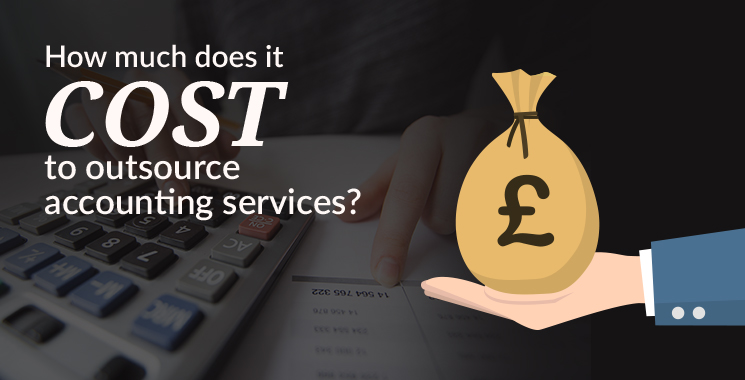We have recently been analysing the business inquiries we have received over the last few years from accounting firms across the country. Without a doubt, one of the questions we get asked all the time is: ‘How much do your outsourcing services cost’?
In this blog, we will cover:
- How outsourcing companies price their services – an understanding of the three different types of fees/engagement models
- The true cost of hiring accountants in-house
How outsourcing companies price their services
Today outsourcing companies offer a variety of pricing models, each of which has its pros and cons. To help you evaluate and determine the best pricing model for your accounting firm, consider these pricing models offered by outsourcing companies:
1. Ad hoc / Pay as you go model
Some accountants really like this model. As the name suggests, the ad-hoc model is when an outsourcing company provides resources for the time you require for a set price.
Typically, the outsourcing company determines an hourly rate, ranging from £10/hour to £18/hour for accounts, and £8/hour to £16/hour for bookkeeping. Sometimes hourly rates of specific employees differ based on seniority.
Pros
- Dedicated staff working for you for a pre-determined amount of time
- Works well when you don’t have large volumes of work
Cons
- This model could disincentive efficiency, as the longer the outsourcing company takes to do the work, the more it gets paid.
- Can cause issues if job cost exceeds the estimate
2. Full-time employee (FTE) or Dedicated resource model
Though QXAS offers all three engagement models, this one is the most popular. A full-time employee (FTE) is when an outsourcing company provides a dedicated employee at a fixed fee per month.
This typically ranges from £1000/month to £1800/month for a senior accountant with 2 years’ experience. The fixed amount is billed to the accounting practice at the end of each month. Under this model, the outsourcing company scopes the number of hours to be completed within the monthly fee.
Pros
- Offers more control to the accountancy practice as they can plan and manage work for their dedicated FTE
- More economical than hourly rates if you have high volumes of work
- A dedicated Account Manager who reports directly to the accountancy practice is assigned
- Allows better budget management without the fear of cost escalations
Cons
- It requires a vast managerial experience, and standardised accounting process within the practice.
- A major change in requirements can disrupt staffing
3. Block-of Hours model
Similar to the Ad-hoc model, but here you can buy a pre-paid block of hours (300,500, 600, 900, 1200 hours, etc). As hours are used they are deducted from the total number purchased.
Pros
- Large block of hours receive larger discounts
Cons
- Hours elapse if you don’t use them within the agreed period of time
The true cost of hiring accountants in-house.
One of the biggest indicators of a growing accountancy practice is the hiring of employees. But when you hire an employee, you have wages to pay every month. As you keep hiring more employees, you could easily make the mistake of thinking that monthly salaries are the only expense you will bear. Hiring staff in-house is expensive. Aside from the salary, you could also be on the hook for:
- Recruitment costs- Recruitment is a thriving industry in the UK. According to Business Advice, most recruitment agencies usually charge between 20-30 percent of the final salary. So if we assume that Payscale is correct and you pay £34,032 to your senior accountant, the recruitment cost would be above £5,000. The cost includes crafting the job specification, screening, initial calls, interviewing, onboarding, hand-over, and training.The chart below is just an example of how accounting outsourcing services can reduce your labour costs which are reflected as overall savings for your practice. How much of a difference can all these savings add up to?

- Training cost- New employees need to be trained before they can start processing tasks. Either you or someone else will have to take time away from revenue earning activities to do this. Instead, you could use that time to bring in new clients or work on existing work. However, when you outsource, the outsourcing company ensures that your outsourced workers are up to speed on any accounting tasks you can throw at them.
- Office space and equipment– When you hire an employee in-house, you have the bear the costs of onboarding, furniture, workstation, office space, parking spaces and other equipment. The cost per annum could easily go up to £6,000 per annum.
- Time cost: One of the issues that accountants fail to take account of is the productive time of the in-house accountant. There are 253 working days in a year, however, if you consider holidays (28 days – including bank holidays), sickness, meetings, appraisals, and training, it is unlikely that your in-house accountant works for more than 225 days in a year.
- Management costs: The final cost is the cost of managing and developing your in-house accountants. This includes yearly appraisals, meetings to discuss career opportunities, and providing feedback on progress. It is likely to take three management days across the year, maybe more if issues arise.
- Other employer costs: Some of the most obvious employer expenses you could be responsible for are: Employer National Insurance contributions (£3,805 for an inhouse accountant with 2 years’ experience), Auto-enrolment pension contributions, Employers’ liability insurance, holiday pay, sick pay, maternity pay, cost of coffee and toilet paper, phone bills, electricity bills, and a drink or two every now and then.
Can it work for your accounting firm?
By outsourcing accounting services, you can minimise and even eliminate most of the employee-related costs mentioned above. When you reduce these costs it allows you to not only save money but also gives you the time and resources to grow your practice.
Free trial
All businesses are looking for a way to maximise their returns. This can be accomplished by a number of methods and outsourcing is definitely one of them. If you are considering outsourcing and are not sure if it’s right for you why not get in touch with us for a free trial.

VISHAL KURANI
VP, Branding & Communications
Originally published Aug 02, 2018 12:08:16, updated Jan 25 2023
Topics:
Don't forget to share this post!

